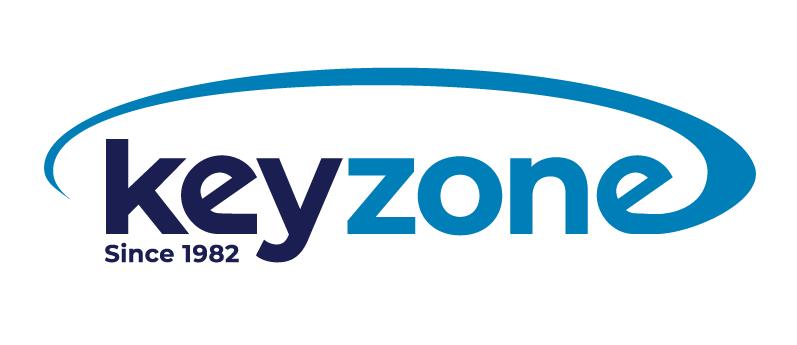We use cookies to make your experience better.
To comply with the new e-Privacy directive, you agree to the privacy policy and our use of cookies.
AMD Ryzen 9 5900XT processor 3.3 GHz 72 MB L2 & L3 Box
SKU
100-100001581WOF
Login for pricing
In Stock
AMD Ryzen 9 5900XT, AM4, 3.3GHz, Up to 4.8GHz, 16 CPU Cores, 32 Threads, 105W TDP
| Processor socket | Socket AM4 |
|---|---|
| Box | Yes |
| Processor cores | 16 |
| Processor family | AMD Ryzen 9 |
| SKU | 100-100001581WOF |
| EAN | 0730143316552 |
| Manufacturer | AMD |
| Availability | In Stock |
| Product Family | Ryzen |
| Product Series | 9 |
AMD Ryzen 9 5900XT 3.3 GHz 16-Core AM4 Processor
Key Features
16 Cores & 32 Threads
3.3 GHz Base Clock
4.8 GHz Max Boost Clock
Socket AM4
8MB L2 & 64MB L3 Cache
DDR4-3200 Memory
Unlocked Processor
Supports PCIe 4.0 x16
Zen 3 Architecture
Power up your computing experience with the AMD Ryzen 9 5900XT 3.3 GHz 16-Core AM4 Processor, which features 16 cores and 32 threads to help quickly load and multitask demanding applications.
Designed for socket AM4 motherboards using the powerful Zen 3 architecture, the 7nm 5th generation Ryzen processor offers significantly improved performance compared to its predecessor. With a base clock speed of 3.3 GHz and a max boost clock speed of 4.8 GHz in addition to 64MB of L3 Cache, the Ryzen 9 5900XT is built to deliver the power needed to smoothly handle tasks ranging from content creation to immersive gaming experiences. You can boost performance further by overclocking this unlocked processor. Other features include support for PCIe Gen 4 technology and 3200 MHz DDR4 RAM with compatible motherboards.
This processor has a 105W TDP (Thermal Design Power) and does not include a cooling solution. Please note that it does not have an integrated GPU, so a dedicated graphics card is required.
Precision Boost 2
AMD Ryzen processors monitor the system's energy consumption, temperatures, and other factors to automatically raise clock speeds, allowing applications to perform faster.
Precision Boost Overdrive
Precision Boost Overdrive technology takes advantage of your compatible motherboard's design to boost clock speeds higher and for longer periods of time. It also allows you overclock the processor at the touch of a button.
AMD StoreMI Technology
AMD StoreMI technology helps to improve load times and overall system performance by combining solid-state drives and mechanical hard drives into a single hybrid storage drive. Frequently used files and programs are cached onto the fast SSD while other files are stored on the high-capacity HDD.
AMD Ryzen VR Ready Premium
Ryzen VR Ready Premium processors are designed to meet or exceed the recommended specifications from the top HMD manufacturers, including Oculus Rift, HTC Vive, and Windows Mixed Reality for smooth performance.
AMD Ryzen Master Utility
Personalized Performance
The AMD Ryzen Master Utility provides you with multiple custom profiles to store CPU, GPU, and DDR4 memory configurations. Use it to configure performance parameters for the active cores and adjust memory times. You can also optimize general performance or fine tune your favorite applications.
System Monitoring
Monitor your system in real-time using the AMD Ryzen Master Utility, which features a histogram of per-core clock rates and temperature, including average and peak readings.
Specifications
General
CPU Model
AMD Ryzen 9 5900XT
CPU Socket
AM4
Manufacturing Process
7 nm
Maximum Number of PCIe Lanes
24 (Revision 4.0)
Unlocked
Yes
Performance
Number of Cores
16
Number of Threads
32
Base Clock Speed
3.3 GHz
Maximum Boost Speed
4.8 GHz
L3 Cache
64 MB
Memory Support
DDR4 Up to 3200 MHz
ECC Memory
No
Channel Architecture
Dual Channel
Power
Thermal Design Power (TDP, Max)
105 W
Included Thermal Solution
No
Maximum Temperature
194°F / 90°C
Thermal Monitoring Technologies
Yes
Technology
Performance Technologies
Precision Boost 2
Key Features
16 Cores & 32 Threads
3.3 GHz Base Clock
4.8 GHz Max Boost Clock
Socket AM4
8MB L2 & 64MB L3 Cache
DDR4-3200 Memory
Unlocked Processor
Supports PCIe 4.0 x16
Zen 3 Architecture
Power up your computing experience with the AMD Ryzen 9 5900XT 3.3 GHz 16-Core AM4 Processor, which features 16 cores and 32 threads to help quickly load and multitask demanding applications.
Designed for socket AM4 motherboards using the powerful Zen 3 architecture, the 7nm 5th generation Ryzen processor offers significantly improved performance compared to its predecessor. With a base clock speed of 3.3 GHz and a max boost clock speed of 4.8 GHz in addition to 64MB of L3 Cache, the Ryzen 9 5900XT is built to deliver the power needed to smoothly handle tasks ranging from content creation to immersive gaming experiences. You can boost performance further by overclocking this unlocked processor. Other features include support for PCIe Gen 4 technology and 3200 MHz DDR4 RAM with compatible motherboards.
This processor has a 105W TDP (Thermal Design Power) and does not include a cooling solution. Please note that it does not have an integrated GPU, so a dedicated graphics card is required.
Precision Boost 2
AMD Ryzen processors monitor the system's energy consumption, temperatures, and other factors to automatically raise clock speeds, allowing applications to perform faster.
Precision Boost Overdrive
Precision Boost Overdrive technology takes advantage of your compatible motherboard's design to boost clock speeds higher and for longer periods of time. It also allows you overclock the processor at the touch of a button.
AMD StoreMI Technology
AMD StoreMI technology helps to improve load times and overall system performance by combining solid-state drives and mechanical hard drives into a single hybrid storage drive. Frequently used files and programs are cached onto the fast SSD while other files are stored on the high-capacity HDD.
AMD Ryzen VR Ready Premium
Ryzen VR Ready Premium processors are designed to meet or exceed the recommended specifications from the top HMD manufacturers, including Oculus Rift, HTC Vive, and Windows Mixed Reality for smooth performance.
AMD Ryzen Master Utility
Personalized Performance
The AMD Ryzen Master Utility provides you with multiple custom profiles to store CPU, GPU, and DDR4 memory configurations. Use it to configure performance parameters for the active cores and adjust memory times. You can also optimize general performance or fine tune your favorite applications.
System Monitoring
Monitor your system in real-time using the AMD Ryzen Master Utility, which features a histogram of per-core clock rates and temperature, including average and peak readings.
Specifications
General
CPU Model
AMD Ryzen 9 5900XT
CPU Socket
AM4
Manufacturing Process
7 nm
Maximum Number of PCIe Lanes
24 (Revision 4.0)
Unlocked
Yes
Performance
Number of Cores
16
Number of Threads
32
Base Clock Speed
3.3 GHz
Maximum Boost Speed
4.8 GHz
L3 Cache
64 MB
Memory Support
DDR4 Up to 3200 MHz
ECC Memory
No
Channel Architecture
Dual Channel
Power
Thermal Design Power (TDP, Max)
105 W
Included Thermal Solution
No
Maximum Temperature
194°F / 90°C
Thermal Monitoring Technologies
Yes
Technology
Performance Technologies
Precision Boost 2
| Processor | |
|---|---|
| Processor generation | AMD Ryzen 5000 Series |
| Processor base frequency | 3.3 GHz |
| Processor manufacturer | AMD |
| Cooler included | No |
| Thermal Design Power (TDP) | 105 W |
| Processor cache | 72 MB |
| Processor model | 5900XT |
| Processor threads | 32 |
| Processor operating modes | 64-bit |
| Processor boost frequency | 4.8 GHz |
| Processor lithography | 7 nm |
| Processor family | AMD Ryzen™ 9 |
| Processor cores | 16 |
| Processor socket | Socket AM4 |
| Processor cache type | L2 & L3 |
| Package type | Box |
| Memory | |
| Maximum internal memory supported by processor | 128 GB |
| Memory types supported by processor | DDR4-SDRAM |
| Memory clock speeds supported by processor | 2667,2933,3200 MHz |
| Memory channels | Dual-channel |
| ECC | Yes |
| Non-ECC | Yes |
| Graphics | |
| Discrete graphics card | No |
| On-board graphics card model | Not available |
| On-board graphics card | No |
| Discrete graphics card model | Not available |
| Power | |
| Thermal Design Power (TDP) | 105 W |
| Technical details | |
|---|---|
| PCI Express slots version | 4.0 |
| Supported instruction sets | AES, AVX, AVX 2.0, AVX-512, SSE, SSE2, SSE3, SSE4.1, SSE4.2, SSSE3 |
| Thermal Design Power (TDP) | 105 W |
| Processor cache type | L2 & L3 |
| Features | |
| Maximum number of PCI Express lanes | 24 |
| Thermal Design Power (TDP) | 105 W |
| PCI Express slots version | 4.0 |
| Supported instruction sets | AES, AVX, AVX 2.0, AVX-512, SSE, SSE2, SSE3, SSE4.1, SSE4.2, SSSE3 |
| I/O configuration | |
| USB version | 3.2 Gen 2 (3.1 Gen 2) |
| USB ports quantity | 4 |
| Total number of SATA connectors | 2 |
| Packaging data | |
| Package type | Box |
You may also be interested in
| Product |
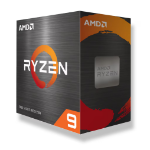
Hot Product
AMD Ryzen 9 5900XT processor 3.3 GHz 7...
Login for pricing
|
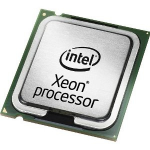
Popular
Fujitsu Xeon E5-2407V2 4C/4T 2.4GHz pr...
Login for pricing
|
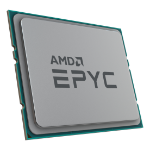
Recommended
AMD EPYC 7262 processor 3.2 GHz 128 MB...
Login for pricing
|
 AMD EPYC 7282 processor 2.8 GHz 64 MB...
Login for pricing
AMD EPYC 7282 processor 2.8 GHz 64 MB...
Login for pricing
|
 AMD EPYC 7502 processor 2.5 GHz 128 MB...
Login for pricing
AMD EPYC 7502 processor 2.5 GHz 128 MB...
Login for pricing
|
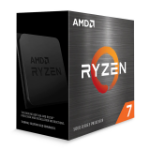
Bestseller
AMD Ryzen 7 5800X processor 3.8 GHz 32...
Login for pricing
|
|---|---|---|---|---|---|---|
| SKU |
100-100001581WOF
|
S26361-F3828-L240
|
100-000000041
|
100-000000078
|
100-000000054
|
100-100000063WOF
|
| Manufacturer |
AMD
|
Fujitsu
|
AMD
|
AMD
|
AMD
|
AMD
|
| Processor lithography |
up to 22nm
|
up to 22nm
|
up to 22nm
|
up to 22nm
|
up to 22nm
|
up to 22nm
|
| Processor cores |
16
|
4
|
8
|
16
|
32
|
8
|
| Cooler included |
N
|
N/A
|
N
|
N
|
N
|
N
|
| Processor family |
AMD Ryzen 9
|
Intel Xeon E5 v2
|
AMD EPYC
|
AMD EPYC
|
AMD EPYC
|
AMD Ryzen 7
|
| Processor socket |
Socket AM4
|
LGA 1356 (Socket B2)
|
Socket SP3
|
Socket SP3
|
Socket SP3
|
Socket AM4
|
| On-board graphics card |
N
|
N
|
N
|
N
|
N
|
N
|
| Discrete graphics card |
N
|
N/A
|
N
|
N
|
N
|
N
|
| Package type |
Box
|
N/A
|
Tray
|
Tray
|
Tray
|
Box
|
